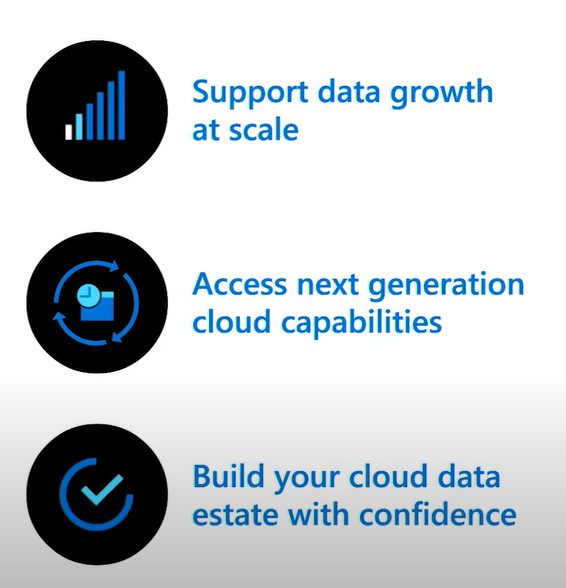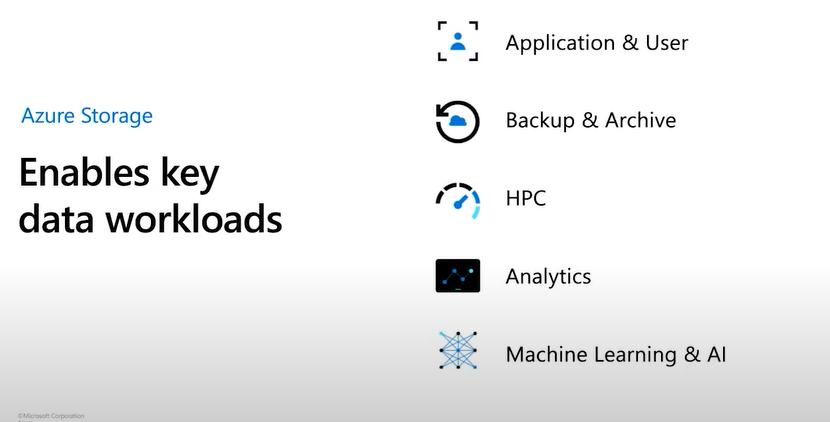In the contemporary competitive market, data is the most crucial business resource. This implies that the overall process of growth, of an organization, is largely dependent on the proper utilization of data. Consequently, to analyze and derive actionable insights from the acquired raw data, the data must be stored in a structured format in a database service or datastores. Although these two terms sound synonymous, in reality, these two differ in the sense that, while a database stores data in a structured way and the relational format, the datastores are designed to provide storage services for large volumes of data only. In this blog post, we will learn about Azure Table Storage pricing which is one such service
Apart from this, the datastores provide the advantage of the automatic scaling features that improve the business performance and application development capacity of the user organization. In addition to these benefits, datastores ensure that, when a lookup is based on previous entities, the queries receive the same consistent data. Azure Table Storage is one such beneficial datastore developed by Microsoft.
What is Azure Table Storage and its benefits

As the name suggests, It is a part of the Azure Cloud Storage structure developed and maintained by Microsoft. In simple words, the term refers to a cloud-based NoSQL datastore that can be used by organizations that require cloud resources for storing huge volumes of structured, non-relational data. Moreover, the application is designed in a schemaless format that subsequently allows the user to store a collection of entities in a single table.
The Azure Cosmos DB is a similar cloud application by Microsoft that is often confused with Azure Table Storage because of its similar functionalities. But, more often than not, these two services cannot be termed identical in the real sense.

Benefits of the features included in the Azure Table Storage:
The features included within the Azure Table Storage pricing range collectively create a very popular service that is used by organizations for storing NoSQL data in a structured format in the cloud platform. Consequently, these attributes are stored in a schema-less design this design format is the reason for the popularity of this storage system. Apart from this, certain advantages can be gained through the use of this service.
These can be enumerated in the following manner:-
- The fact that the service is very fast and consists of cost-effective plans that suit all kinds of organizations is very advantageous.
- Apart from this, the fact that all kinds of datasets can be stored within the store is beneficial for the user organization.
- The user company can store innumerable numbers of entities within the service. This implies that one storage account can store several tables up to the limit of the storage account.
- The fact that the Table Storage can store large volumes of structured data and is a NoSQL datastore, it is designed to accept authenticated calls from both inside and outside the cloud platform of the Azure Government.
- The user organization can also store and query large volumes of structured, non-relational data.
- The service has the capacity of storing TBs of structured non-relational data.
- It is ideal for storing datasets that do not require foreign joins, complex keys or other stored procedures.
- A clustered index feature in the Azure Table Storage pricing is also capable of querying data in a quick and simple process.
Azure Table Storage Pricing range: An Explanation
Table Storage offers a NoSQL storage format for semi-structured and unstructured data which is ideal for developing web applications, address books, and other user data. The features within the Azure Table Storage pricing range are priced and categorized cost-effectively. It can be enumerated in the following manner:-
Tables encrypted with a key that is scoped in the service
This consists of the pricing structure for the data storage and transaction prices for the tables that rely on keys that are scoped to the service and use the Microsoft managed key for encryption at rest.
- Data storage prices:
| Storage Capacity | LRS | GRS | RA-GRS | ZRS | GZRS | RA-GZRS |
| Storage in GB / month | $0.045 per GB | $0.06 per GB | $0.075 per GB | $0.0562 per GB | $0.1012 per GB | $0.1265 per GB |
- Operations and Data Transfer pricing: The service charges $0.00036 per 10,000 transactions for tables. All kinds of operations against the storage are considered to be a transaction. This includes the reads, writes and deletes.
Tables encrypted with a key that is scoped to the storage
This reflects the data storage and transactions pricing structure for the account-specific key encrypted tables which is scoped to the storage account. This provides the user with the opportunity to configure customer-managed keys for performing encryption at rest.
- Data storage:
| Storage Capacity | LRS | GRS | RA-GRS | ZRS | GZRS | RA-GZRS |
| Storage in GB / month | $0.045 per GB | $0.09 per GB | $0.1395 per GB | $0.0563 per GB | $0.1116 per GB | $0.1395 per GB |
- Operations and Data Transfer:
| Operations | LRS | GRS | RA-GRS | ZRS | GZRS | RA-GZRS |
| 10K Batch Write Operations | $0.075 | $0.15 | $0.15 | $0.075 | $0.165 | $0.165 |
| 10K Write Operations | $0.025 | $0.05 | $0.05 | $0.025 | $0.055 | $0.055 |
| 10K Read Operations | $0.005 | $0.005 | $0.005 | $0.005 | $0.005 | $0.005 |
| 10K Scan Operations | $0.09 | $0.09 | $0.09 | $0.09 | $0.09 | $0.09 |
| 10K List Operations | $0.09 | $0.09 | $0.09 | $0.09 | $0.09 | $0.09 |
| 10K Delete Operations | $0 | $0 | $0 | $0 | $0 | $0 |
What are the features of Azure Table Storage:

The term Azure Cloud Storage is an umbrella term that consists of certain categorizations. These can be stated as follows:-
- Azure Blob Storage
- Azure Disk Storage
- MS Azure File Storage and
- Azure Storage Queues
The features included within the Azure Table Storage pricing range can be explained in the following manner:-
- Several petabytes of non-relational data can be stored in a structured format within the service. The availability of the data is also easier through the geo-replication data transfer feature where the stored data is converted into virtual datasets. The user company can also scale up the data without manual effort.
- Cloud applications can be developed within the cloud platform without locking the specific data model in use. This means that the applications and table schema can be developed by the service without going into offline mode.
- The service also employs a consistent data model structure through its entity functionality.
- The client libraries provide advanced artificial intelligence capabilities within this service.
Disadvantages of using the Azure Table Storage:
As understood earlier, the Azure Table Storage provides an array of benefits to the user organization which include the points like i) it is a cost-effective service, ii) not many requirements of being set up, iii) the service is easily understood and iv) the model has simple categorizations into entity group transactions model, row key model and partition key model. But, much like all Applications and services, It consists of certain drawbacks which can be stated in the following manner:-
- Although the service claims to be highly scalable, in reality, the scalability feature is slightly weak in practice.
- Certain basic database operations are not available within the features of the service.
- Disaster recovery is one crucial part of data usage in the modern world. In the absence of data backup techniques, the Azure Table storage will hardly be of any service after a certain cloud or software mishap.
Description of the parts of Table Storage:
The complete service is dependent on certain components that work together to provide the desired benefits to the user company. These components can be enumerated in the following manner:-
- The URL format – This provides direct access to the storage queues.
- Accounts – During the access to Table Storage, the actions are managed through the user organization’s storage account.
- Tables – This is a collection of entities without schemas.
- Entity – The entity functionality projects entities as being similar to rows in tables.
- Properties – These can be understood as name-value pairs stored within entities.
Azure Consultation with EPC Group:

The EPC Group is one of the most trusted Azure and Power BI Embedded consultation partners in the market. The company consists of a group of experts that believe in helping their clients in the process of successfully deploying, implementing, and using Microsoft applications, tools, and services. With more than two decades of experience in designing customized plans and training programs for clients, the organization has created a well-thought strategy of governing data.
Thus, for companies looking forward to storing and utilizing their non-relational data to attain maximum benefits, the consultation programs of EPC Group related to the Azure Table Storage are the beneficial choice.
Conclusion:
This storage service can provide the user organization with features like scalability and high performance. Apart from this, large volumes of structured data can be stored within the datastore in the non-relational format. The crucial aspect of the features available under the Azure Table Storage pricing range includes the fact that the pricing structure of the service is designed to allow the user organizations to use more while paying less. This in turn allows the user to derive more benefits at a comparatively beneficial subscription plan.
So, it can be concluded that this service is better and more cost-effective than the other storage options in the market.
Fill In The Form For – FREE 30 Mins Azure Table Storage Consulting










